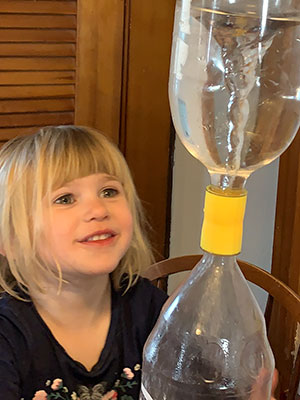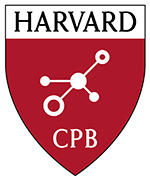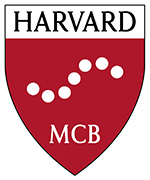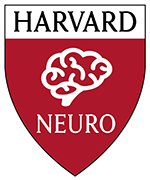
Irina Cashen
Life in quarantine has certainly been teaching me perspective. That I have much to be grateful for and that my complaints, while real, are petty compared to what other people are dealing with. But I laugh when I read about the people who are using all their free time to write a book, sew a quilt, or bake six new kinds of bread – I’m happy for them but I cannot relate to them about free time! When I’m not working I am mostly just trying to keep my three-year old from climbing the walls. Since she’s an only child she’s insisted that my hands act as two spider friends named “Kiki” and “Mumu” to accompany her most of the time. Often simultaneously I am also a sea otter scientist named Shellington and a pirate cat named Kwazii from the book and Netflix series Octonauts who go on missions with her. It’s fun but it gets a bit disorienting – all the characters have different accents and sometimes by the end of a long day I mix them up and forget who I’m supposed to be at any given moment. All part of the surreal strangeness of this quarantine experience I guess. I have tried to set small personal creative goals for myself though. Today I will practice the piano, or vocals, if only for 20 minutes. This weekend I will have a virtual “practice” with my band. (The delay on five people playing/singing at the same time is so bad it’s funny, but it’s nice to see each other’s faces.) And maybe by the end of all this I will have finished renovating one room of the Victorian dollhouse I inherited from my aunt and have been remodelling into a castle. Not the whole thing mind, you, but one room. Maybe.

I’m looking forward to going back to some semblance of normal in my day to day life, however far off that is – I miss our students in the CPB-MCB Concentration Office! One of my favorite parts of my job has been encouraging them all to write posts for the Humans of CPB-MCB section of our Community Photo website. The students are so funny because when I ask them to participate most of them say, “There’s nothing interesting about me, I have nothing to write about” – which is adorable and ridiculous. So I go through the same process each time of gently coaxing them to tell me about their interests and then finding that oh surprise, surprise – they have something fascinating to share. And then, if not in lockdown, I really love taking a photo of each of them where I try to capture something they’ve (finally!) written about. Our community has learned a lot about each other from these stories – and I’m hoping they’ll have lots to share when we all come back! In the meantime it’s been nice to catch up with the students in our weekly virtual study breaks. Sometimes people bring their pets or siblings along to these too, and it’s been fun learning about aspects of everyone’s home lives that we might otherwise not have if we weren’t in quarantine.
Our weekly study breaks are a chance for students to ask open questions as well, and we are holding 3 virtual open houses this semester for first-years who are interested in our concentration. Dominic and I are in touch every day via text and email. Right now one of my projects is collecting grades and feedback for our 34 theses, each of which is read by 3 people – so that’s 102 grades/feedback responses which I have to make sure get back to me on time for semester and graduation deadlines. I am pretty fierce with my organization for that – readers have different deadlines and many required personalized reminders and communications. Once I get all the feedback and grades I will then turn those into individualized letters for the students, which I will email to them. It’s been a little different this year, as so many of our readers have written to me about how they are also treating COVID patients or are on a COVID task force team at their hospital, which is their top priority. I was worried this would mean folks might need to decline to read at the last moment, but what’s been remarkable is how gracious and generous the readers have been. Everyone has been determined to read the theses they signed up for, even if it takes extra time on their part which they clearly don’t have with everything going on right now. One reader said he was actually on sabbatical and would not normally have read the paper, but he knew that everyone was struggling right now so he was happy to help out. I was very pleasantly surprised by these reactions – it’s almost as if this crisis has brought out the best in our community, which is really lovely.

Dominic Mao
I am learning a lot from this experience. I miss my students. I miss my office. I miss campus life.
Concentration:
It is amazing, though, what we are able to achieve remotely. Our concentrations have continued the weekly study breaks on Zoom where people can drop by and talk about anything and everything. We successfully conducted our thesis presentations in a webinar format on Zoom for the very first time. We had 59 attendees comprising mentors, family, prospective students, etc. We have open houses for first-years on zoom where our concentrators talk to first-year students. The breakout feature in Zoom is very handy for enabling students to mingle in small groups. The Humans of CPB-MCB project that we started a couple of years ago (obviously mimicking Humans of New York) provides an invaluable way for us to continue discovering things about our community members and getting to know each other better.
Family:
I have two toddlers at home and I am trying to replicate their preschool curriculum at home, which is harder than I imagined. It required me to fragment my work hours and rearrange my day quite drastically. I have solid blocks of time before they wake up in the morning, nap time, and after they go to bed at night. During the day there are intermittent sprinklings of time when they are eating or playing that I use for quick email replies. However, many tasks require a continuous block of time where I can focus on a given task completely from start to finish. For example, communications that I sent to students the past few weeks were time-sensitive and needed to be clear and accurate in order to minimize confusion. I find it hard to compose such communications during the day. When teaching and supervising young kids, one needs to give full attention all the time! If you try to multi-task, they will make sure to bomb your zoom meeting or your email will end up having typos. I am back to looking at life starting with the ABCs and what a lesson it is this time around…

Me:
Without my daily commute I am able to fit in more things into every day. I cook, play guitar, and go on bicycle rides with Timmy by my side (the student-appointed mascot for the concentrations). My roti (Indian bread) making game is top notch now because I have regular practice making fresh rotis every other day!


Other:
Preparing for the fall semester, recruiting staff for MCB 60, reviewing existing programs to improve them, developing undergraduate research management tool with HUIT, etc. are other tasks that continue online. Consuming the news every day and keeping track of the various COVID-19-related curves is important, but can weigh one down, so these forward-looking tasks are quite refreshing.
Summary:
Working from home is not easy, but it is not hard either. It is different, but it is not the end of the world. 🙂
Neuroscience Concentration

Laura Magnotti
Ryan Draft, Laura Magnotti, and James Poolner
What projects might you be working on these days as you work remotely?
Ryan and Laura: We are still teaching, advising, coordinating research and grades, planning the curriculum, etc (the show must go on!). In addition, we are working hard to redesign our courses to be more effective online and finding creative ways to keep our student community active.
James: This is the busiest time of year for me; however, I’ve been conducting a large portion of my duties electronically for about a decade, so there hasn’t been that much of a shock. To rattle off a few things happening in my corner now:
• I’ve collected Seniors’ Undergraduate Theses and been the conduit for their faculty evaluations; I’ll also be the conduit for the undergrads’ Supervised Research course reports and grades.
• I’m coordinating thesis conferences for other departments
• I’m collecting course data in order to submit departmental Honors recommendations for the graduating classes
• Normally I’d also be helping coordinate other “live” events—e.g. for High Schoolers who’ve been accepted into the college (“Visitas”), various Senior Thesis and related celebrations, and the Senior Farewell Sendoffs for Class Day; unfortunately those have been cancelled.
• I’m also working with Dominic Mao, Logan McCarty, Irina Cashen, and HUIT to build a new undergraduate research database for the college’s academic tracking purposes, which aims to cover the whole university.
Have you encountered any difficulties or problems and found solutions?
Ryan and Laura: Maintaining a connection/sense of community with students is difficult. 1-on-1 is not bad over zoom, but group events are tougher to implement. Additionally this year we transitioned our thesis oral defenses online and ran into snags with simultaneously running multiple zoom rooms and students’ shakey internet connections at home.
Another big issue for students is how to continue their independent research (thesis) projects while not being allowed in lab this past semester, the summer, and maybe beyond.

James Poolner
James: Navigating new avenues the Registrar’s Office is laying out for the submission of grades and recommendations is a challenge but not insurmountable. Coordinating thesis conferences via Zoom is new but simple. Everything that we need to do gets done, but in a slightly different way, and sometimes accompanied by a little fog to clear away first.
Another more amorphous difficulty is that my senses of routine and time-boundaries have been smeared, so that I will often find myself working odder hours than I had before the shutdown. During a busy time of the semester such as this, that means there are many days during which the workflow is like water: it will fill whatever shaped container of time it pours into.
Are you regularly in touch with each other?
Ryan: Email, email, and more email! Zoom calls help when larger discussions are needed. At this point, we know each other so well, very few words can often suffice 🙂
James: I miss being able to simply pop my head into my colleagues’ offices, but email’s more than adequate. I can hear their voices in my heads when I read them. (See also: keeping sanity)
Laura: There is far less shouting through office walls, though.
Do you have regular office hours with the students?
Ryan: By appointment (how we always operate) along with weekly socials where we play games (brain jeopardy) and show off our at-home lives (pets, study spaces, favorite books and TV shows).
Laura: I actually find that more students are reaching out for zoom chats than they used to come by the office in person. Partially more uncertainty and wanting reassurance and partially less effort to hop on zoom than to walk to the BioLabs 🙂
James: At home, all hours are potentially office hours—another reason demarcating boundaries and setting up new routines is helpful.
Staying sane

Ryan Draft with Pumpy
Ryan: I am lucky to spend quarantine on honeymoon with my new wife (married in late January) and my step-dog, “Pumpy”. We do have more free time after work with everything cancelled. I have been working on a few new activities so I don’t drive my wife crazy: learning the Cyrillic alphabet, practicing the piano, and some at-home prison-style bodyweight workouts. What I really love, however, is long walks and runs in Middlesex Fells in the early mornings.

Laura: Who says I’m staying sane? I have resurrected a few hobbies that had gone by the wayside in the past because of lack of time, like cheesemaking and genealogy. I also entertain myself by changing my zoom background regularly to a photo I’ve taken while traveling just to remind myself that there are other places out there beyond Cambridge and some day I will have a chance to visit them again.
James: Learning Ryan’s dog is named “Pumpy” has shattered what little sanity I had retained. I try to build it back up by going on frequent walks, listening to and playing music, hanging out with the offspring, and watching television until sanity is no longer an issue.
How are the students doing? What issues have they encountered? How are they doing with taking their classes via Zoom….? Do they have any issues/concerns with which the broader community can help?
Ryan: In general, students are relatively unfazed by transition to remote classes (this generation are digital natives). The biggest hit was in lab courses.
Laura: Zoom fatigue is real, though. Students are tired of staring at a screen all day, especially in larger courses that have minimal or no interaction. I’ve also heard about struggles collaborating on problem sets (no spontaneous d-hall pset brainstorming sessions, also technical difficulties sharing problems on paper). Some have also found it hard to stay motivated after the grading switched to SAT/UNSAT.
Students most affected are those with difficult home situations (unstable, crowded, noisy) or those having to take on new family care responsibilities with health problems and lack of sibling school/care. Also those in different time zones or those who are not physically with their family (e.g., those still on campus) and are worried about something happening when they’re far away.
Ryan: A big concern has been lab research and meeting premed requirements. Perhaps the broader community could help with the lab research aspect? Students are struggling to find projects they can work on remotely, and lab mentors who take an interest if the students only contribution is a literature review/grant proposal style project.
Another concern is the inability to interact with each other, which is a big part of what makes the undergraduate experience at Harvard so special. Seniors are upset/angry/frustrated about losing out on senior week and graduation. Athletes had their seasons prematurely end (and for seniors, end for good) and have lost connections with their teammates.
Laura: Also lots of uncertainty about the future, whether short term (summer research/internship/volunteering was cancelled and now scrambling to make new plans) or long term (will the economy recover enough for jobs to be available after graduation? Should they take a leave of absence next fall/spring? Will study abroad ever be possible again?)
James: We feel so much for all students who were displaced—but at this time of year, I hurt especially for the graduating Seniors whose culmination of their undergrad experience has been altered and dashed beyond the ability to “fix”. They won’t get to have that long period after finals, up to commencement, where they get to celebrate with each other all they’ve achieved and bonded over during their first four years of academia. They may have an interesting story to tell their children and grandchildren, but for now, Seniors and all undergrads are saddened, they miss the strong social networks that are one of the hallmarks of Harvard life, they’re stressed about completing difficult courses or lab work from home, and they’re just trying to just finish out this bumpy year in one piece.





